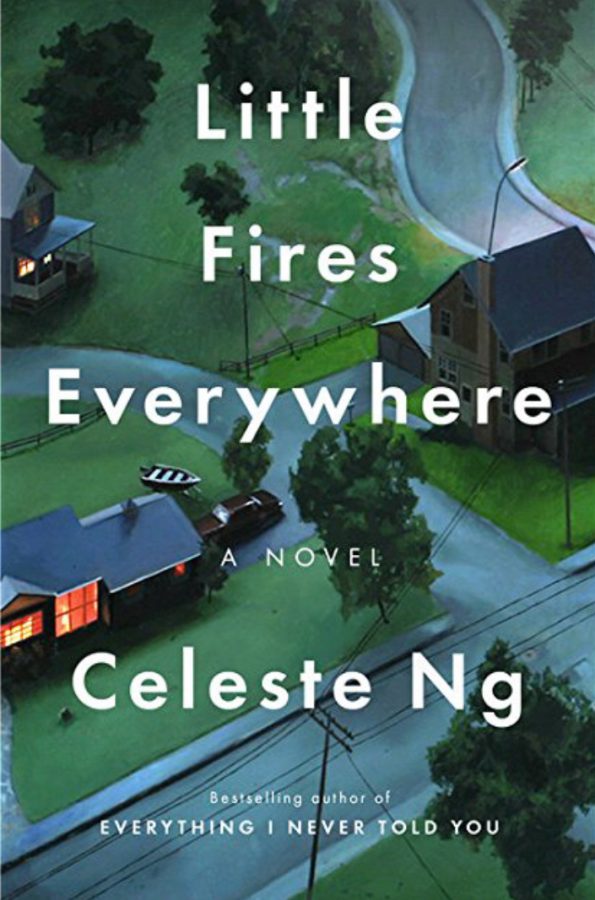The Problems (or the lack of) in Suburbia
Celeste Ng tackles what makes the suburban lifestyle so right, yet so wrong
February 15, 2018
I have recently finished reading the novel Little Fires Everywhere by Celeste Ng where quite literally, little individual fires not only destroy the suburban home of a more-than-financially-stable family, but also many relationships in the process. This got me thinking: is the perfect American family that lives in the perfect, though admittedly too large, suburban house, in the absolutely perfect neighborhood really that perfect.
Though the novel is fictional, the setting, the town of Shaker Heights, is not. The author of the novel, Celeste Ng, lived in Shaker Heights, ten miles east of Cleveland. In an interview for Cleveland.com, Ng states: “what an unusual place it is: how progressive the community is, how many opportunities we had at school…Growing up in Shaker made me conscious of race, in the best possible way.”
Shaker Heights is one of the first planned communities in the nation. In Little Fires Everywhere, Shaker has a variety of rules. Every house was to be uniform: a “young Norway maple, one per house […] garbage cans were left at the rear of the house, to avoid the unsightly spectacle of trash cans cluttering the curb […] an unmowed lawn would result in a polite but stern letter from the city […] houses could be painted only slate blue, moss green, or tan to ensure aesthetic harmony on each street.”
This image of suburban towns all seems quite alright at this point, until something happens to screw it up. It is so easy to get lost and hide in the hustle of the city or the serenity of rural land. But you can’t hide in the suburbs, not where everyone knows who you are and what you do. This can be seen in Ng’s fictional character of “little Mirabelle McCullough—or, depending which side you were on, May Ling Chow”. This baby, who was left at a fire station as a newborn, was rescued by one of the aforementioned perfect families who couldn’t have a child. Now the baby’s birth mother wants her back.
This trial pits families against each other; relationships are severed. While this fire of a lawsuit rages, other smaller fires smolder. Revelations of citizens in Shaker Heights cause problems between friends and family. Whether it be a teenage pregnancy, a shameful abortion, a corrupt job, or a violent divorce, everyone hears everything.
Needless to say, while the exterior of surburbia might be charming excellence, what lies inside might be reason enough to disappear.

